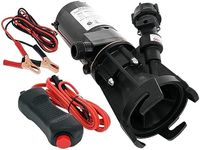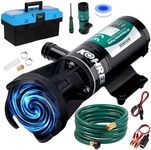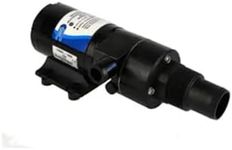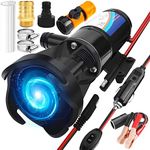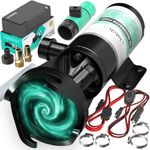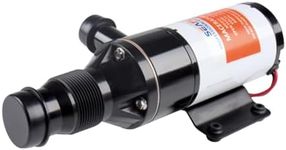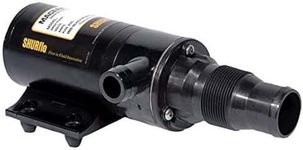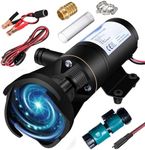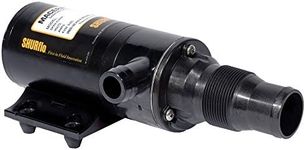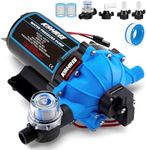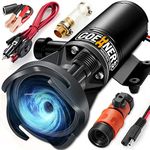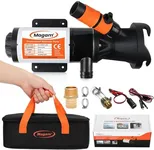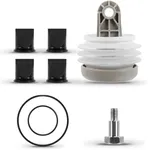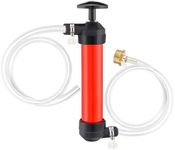Buying Guide for the Best Macerator Pumps For RVs
Choosing the right macerator pump for your RV is crucial for ensuring a smooth and hassle-free waste management system. A macerator pump grinds up waste and toilet paper, making it easier to pump through a smaller hose to a sewer or septic system. When selecting a macerator pump, it's important to consider several key specifications to ensure it meets your needs and provides reliable performance. Understanding these specifications will help you make an informed decision and choose the best macerator pump for your RV setup.Flow RateFlow rate refers to the amount of waste the pump can move per minute, usually measured in gallons per minute (GPM). This spec is important because it determines how quickly the pump can empty your RV's holding tank. Higher flow rates mean faster pumping, which can be beneficial if you have a large tank or want to minimize the time spent on waste disposal. Flow rates can range from around 10 GPM to over 20 GPM. If you have a smaller RV or don't mind waiting a bit longer, a lower flow rate may suffice. For larger RVs or those who prefer quicker waste disposal, a higher flow rate is recommended.
Power SourceMacerator pumps can be powered by different sources, such as 12V DC from your RV's battery, 110V AC from a power outlet, or even manual hand pumps. The power source is important because it affects the pump's convenience and compatibility with your RV's electrical system. A 12V DC pump is ideal for boondocking or when you don't have access to shore power, while a 110V AC pump can be more powerful and efficient if you have access to an electrical hookup. Choose a power source that aligns with your typical camping setup and power availability.
PortabilityPortability refers to how easy it is to move and store the macerator pump. This is important if you plan to use the pump at different locations or need to store it when not in use. Portable macerator pumps are typically lighter and more compact, making them easier to handle and store. Some models are designed to be permanently installed, which can be more convenient if you use the pump frequently and don't want to set it up each time. Consider your usage patterns and storage space when deciding between a portable or permanently installed pump.
Noise LevelNoise level indicates how loud the pump is during operation. This is important for maintaining a peaceful environment in and around your RV. Quieter pumps are generally more desirable, especially if you plan to use the pump in close proximity to your living area or at night. Noise levels can vary significantly between models, so look for pumps that are specifically designed to operate quietly if this is a priority for you. If noise is not a major concern, you may have more flexibility in your choice.
DurabilityDurability refers to the pump's ability to withstand regular use and harsh conditions. This is important because a durable pump will last longer and require less maintenance, saving you time and money in the long run. Look for pumps made from high-quality materials, such as stainless steel or heavy-duty plastic, and those with good reviews regarding their longevity and reliability. If you frequently travel or use your RV in extreme conditions, investing in a more durable pump can be beneficial.
Ease of InstallationEase of installation refers to how simple it is to set up the macerator pump in your RV. This is important because a pump that is easy to install will save you time and effort. Some pumps come with all necessary fittings and clear instructions, making the installation process straightforward. Others may require additional parts or professional installation. If you're not comfortable with DIY projects, look for a pump that is known for its easy installation or consider seeking professional help.
